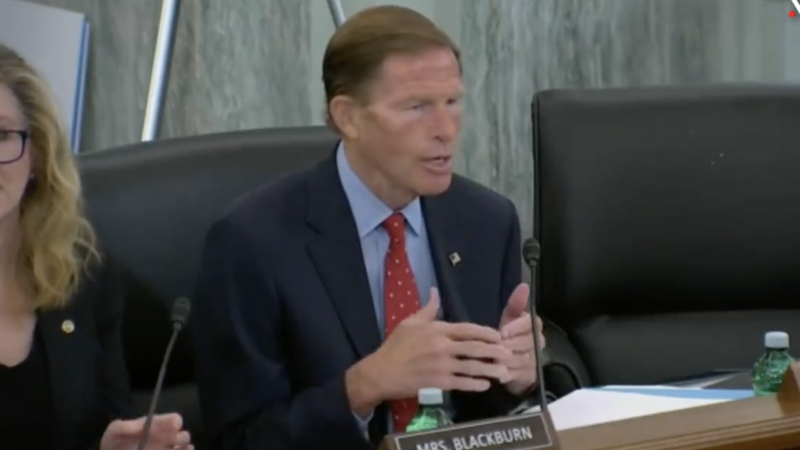Manchin Proposed $1.5T Top-Line Number In July
With frustrated Democrats pressing Sen. Joe Manchin (D-WV) to produce a dollar figure at which he’d be willing to vote for their gargantuan spending bill, it turns out that many on the hill already knew what his absolute top-line figure was.
According to Politico, Manchin proposed a $1.5 trillion package to Senate Majority Leader Chuck Schumer (D-NY) this summer in a one-page document that outlined his red lines to President Biden’s jobs and families plan.
The document, dated July 28, proposes raising the corporate tax rate to 25%, the top tax rate on income to 39.6%, capital gains to 28% and that any that any revenue raised from the bill exceeding $1.5 trillion would go towards deficit reduction.
In bold text, the document says “Senator Manchin does not guarantee that he will vote for the final reconciliation legislation if it exceeds the conditions outlined in this agreement.“
While both Manchin and Schumer signed the document, Schumer wrote a note which said he’d “try to dissuade Joe on many of these.”
“Leader Schumer never agreed to any of the conditions Sen. Manchin laid out; he merely acknowledged where Sen. Manchin was on the subject at the time,” said Schumer’s office. “Sen. Manchin did not rule out voting for a reconciliation bill that exceeded the ideas he outlined, and Leader Schumer made clear that he would work to convince Sen. Manchin to support a final reconciliation bill — as he has doing been for weeks.”
As Politico notes, it’s unlikely Democrats will come down to Manchin’s figure, and it’s of course unknown if he’ll shift his figure higher (though recent comments suggests that’ll be a ‘no’), the document shows that Manchin does in fact have a top-line number.
Manchin has met with President Biden several times since producing the document.
“I wasn’t trying to be a fly in the ointment at all. I’ve never been. I’ve never been a liberal in any way shape or form,” said Manchin in a Thursday press conference after Politico‘s story went to print. “For them to get theirs, I guess elect more liberals. I’m not asking them to change. I’m willing to come from zero to $1.5” trillion.
Manchin said on Wednesday the top priority of the Senate’s reconciliation bill should be tax reform, and he’s generally on the same page with most Democrats in his proposal — though his corporate tax rate idea is below Biden’s preference and that of House Democrats. Manchin is not alone there: Sen. Angus King (I-Maine) said in an interview this week he also prefers a 25 percent corporate rate.
Additionally, Manchin is calling for means testing on as many new programs as possible, including health care, child care and education, “targeted spending caps on existing programs” and “no additional handouts or transfer programs.” Manchin has repeatedly raised concerns about Biden’s plan potentially creating an “entitlement society.”
Working on Sinema
Democratic leaders have also been pressuring Kyrsten Sinema (D-AZ), another moderate Democrat who refuses to vote for the $3.5 trillion bill.
“Senator Sinema said publicly more than two months ago, before Senate passage of the bipartisan infrastructure bill, that she would not support a bill costing $3.5 trillion. In August, she shared detailed concerns and priorities, including dollar figures, directly with Senate Majority Leader Schumer and the White House. Claims that the Senator has not detailed her views to President Biden and Senator Schumer are false,” said Sinema spokesman, John LaBombard. “She continues to engage directly in good-faith discussions with both President Biden and Senator Schumer to find common ground.”
Tyler Durden
Thu, 09/30/2021 – 19:40
via ZeroHedge News https://ift.tt/3ioDVdD Tyler Durden









